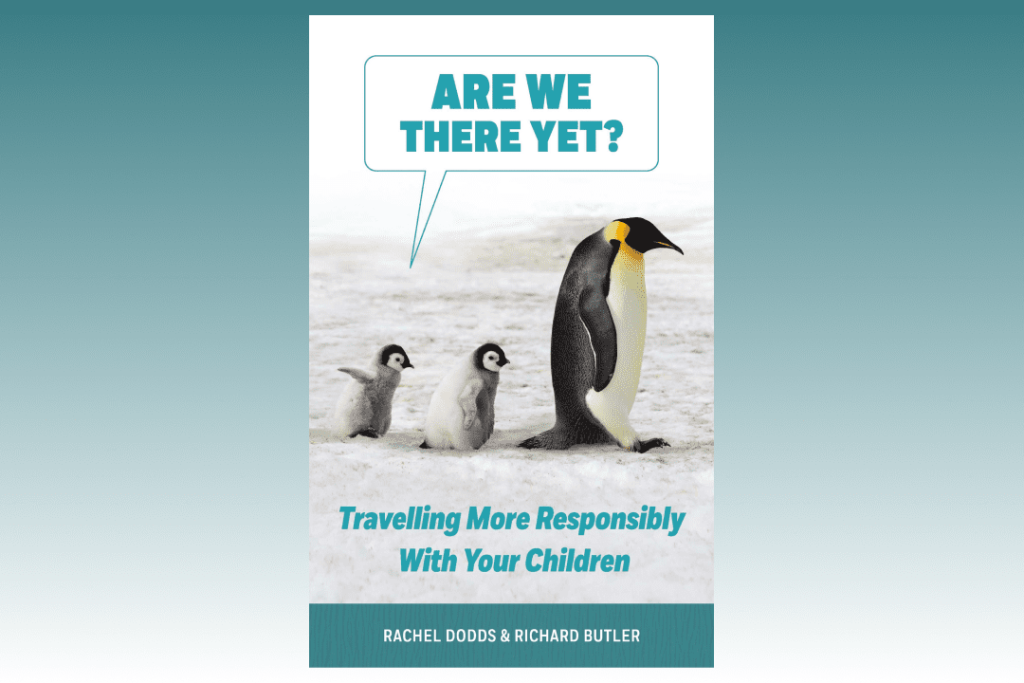In spite of the continued information on the negative impacts of travel, it can be a force for good! It creates employment, increases foreign exchange, and builds cross-cultural relations and understanding. We are pleased to have a guest article from published author Professor Dr. Rachel Dodds, who is a globally recognized expert on sustainable tourism and is passionate about providing solutions to make tourism more responsible. So let’s get to it: here are five ways you as a family can travel more responsibly.
1. The Transportation Challenge
Tourism is a large contributor to the climate crisis as we must travel to get to where we wish to visit. According to the United Nations World Tourism Organization, tourism is responsible for approximately 5% of global emissions and approximately 22% of all transport emissions. Did you know that one long-haul flight can generate the same emissions as driving a car for a year?
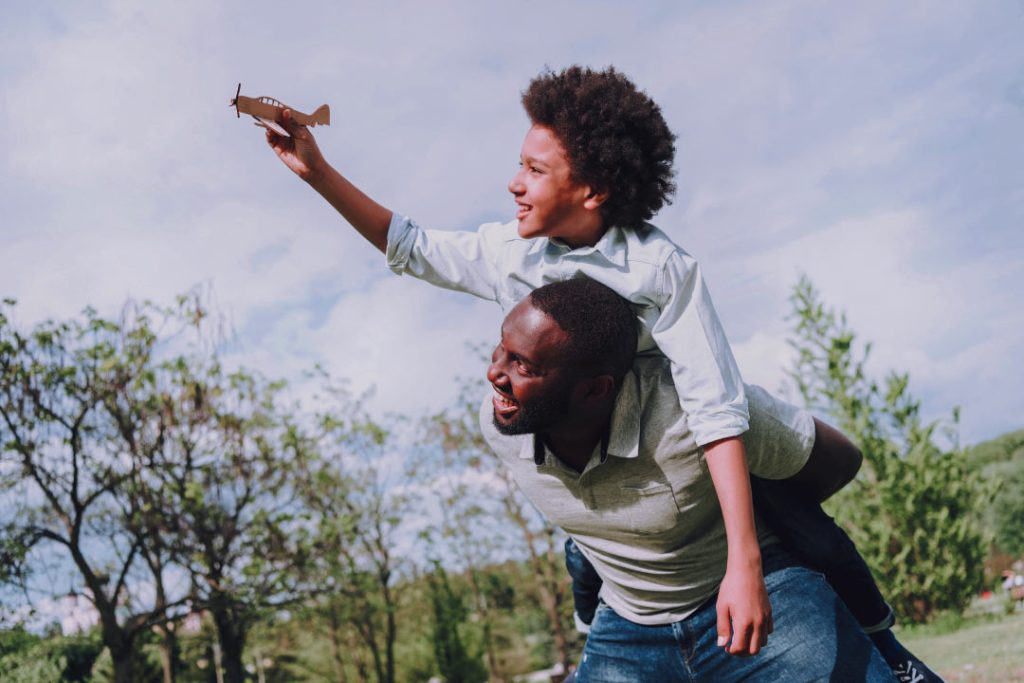
Ways to work around it
Fly less and stay longer. If possible, take alternative forms of transport such as the train, electric car, or carpool. Packing less not only lowers weight that contributes to carbon emissions, it means less to carry around with you – definitely easier with children. An easy way to determine emissions is to use Google Maps or Skyscanner to determine your carbon footprint, as it shows the least carbon-intensive way to travel. Also, check to see if the places you are going have items such as highchairs, cots, etc.; if your children are young – consider bringing a small, lightweight stroller – this also saves carbon, as weight is part of the issue.
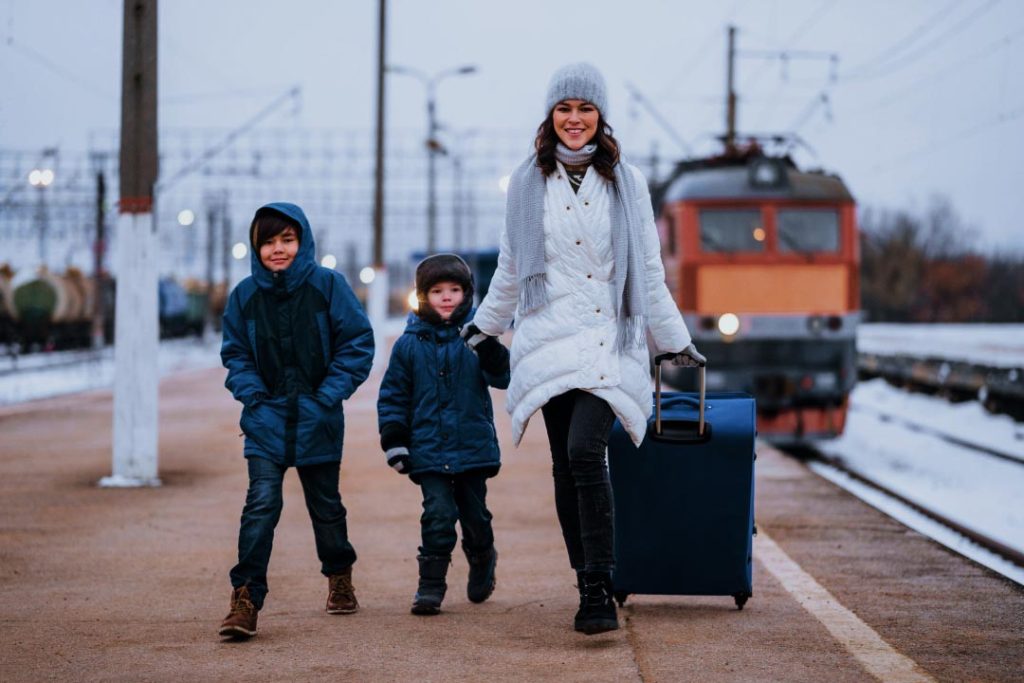
2. R.E.S.P.E.C.T
Unfortunately, not all forms of travel consider local residents or indigenous cultures. Increasing numbers of people are visiting tourism and recreation facilities operated by indigenous peoples, and there are some important things to remember when doing so. Many sites on indigenous land are precious, even sacred, to the people who live there, and all visitors should be careful in the way they behave so that they do not offend the beliefs or values of the local people. Children learn empathy and compassion at a young age, so introducing them to new cultures and communities is a wonderful way for them to realize that although we may be different, we are all humans. Children also do not harbor the same reservations as adults often do, so foster the opportunity for children to play and learn from one another.
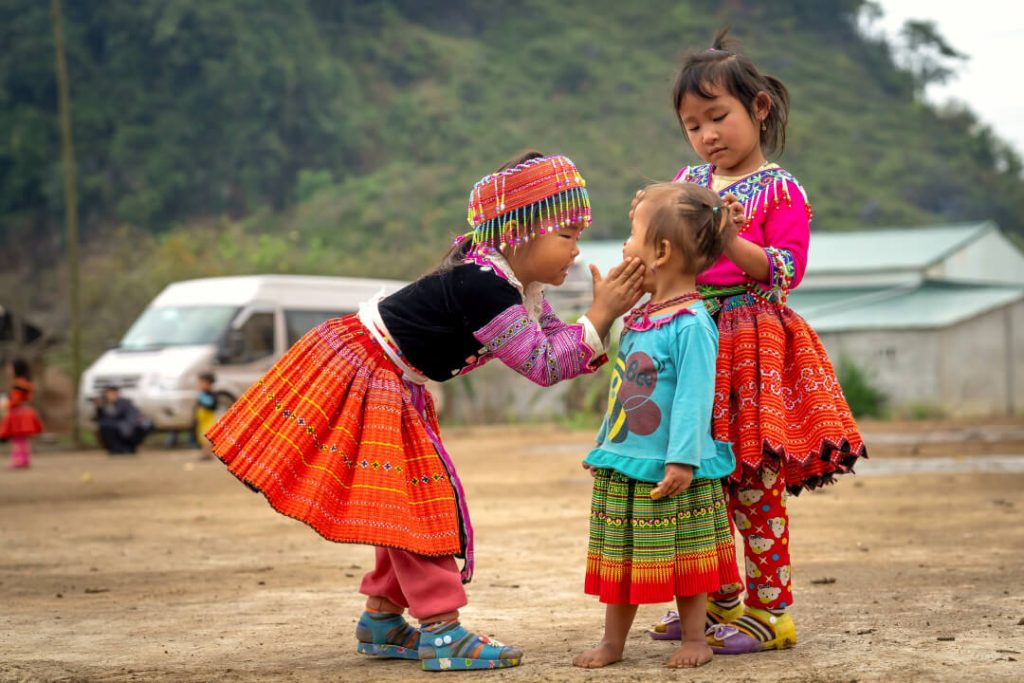
Encouraging consideration
Show gratitude and respect and have patience. Encourage your children to wait for a welcome and remind them that you are not only visitors; you are guests! For example, the off-the-beaten-path swimming hole may be a sacred site or traditional fishing spot even though it looks like a wonderful pool to children. Ensure children don’t wander off on indigenous land without permission and follow the rules of the local guides. Oftentimes, different cultures have different ways of sharing their stories – being patient is often rewarded with a great experience but be mindful of how much attention your children are paying and whether listening to the historical stories is appropriate for them.
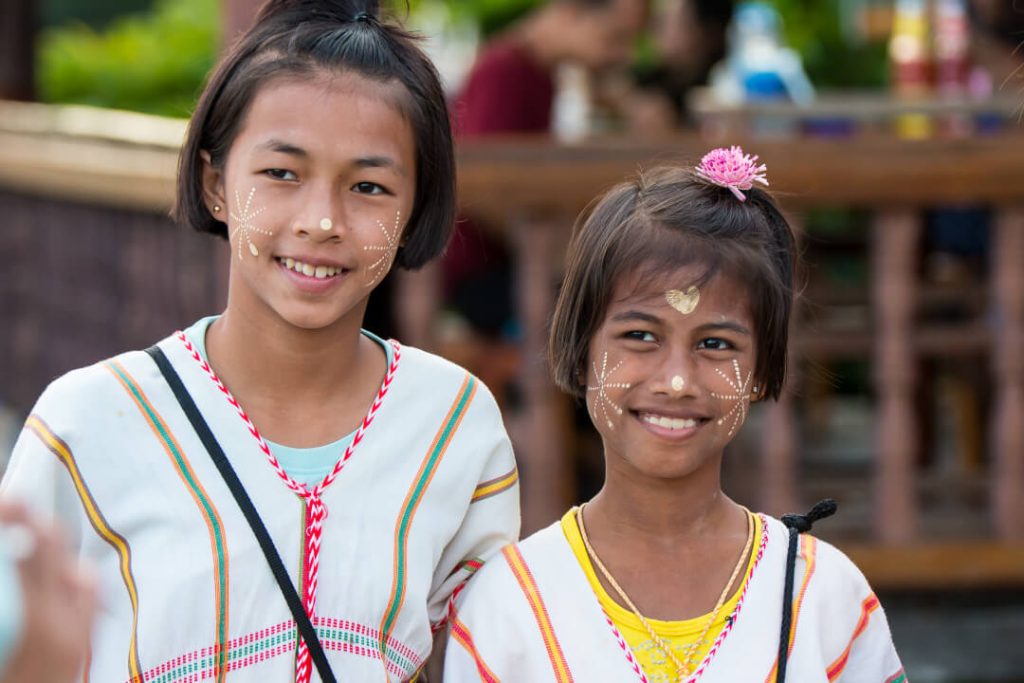
3. The Resource Puzzle
Tourism as an industry can be very resource intensive with regard to water, waste, and energy, so engage your children! Learning at a young age solidifies responsible behavior. Did you know that a 3* hotel uses an average of 350 liters per person per night while a 5* hotel uses up to 1800 liters of water per person per night! This does include such things as swimming pools, fountains, and laundry, but it is still a lot. Also, many of us believe if we recycle, we are doing our part. Unfortunately, recycling is the last of the 3 R’s (reduce, reuse and then recycle).
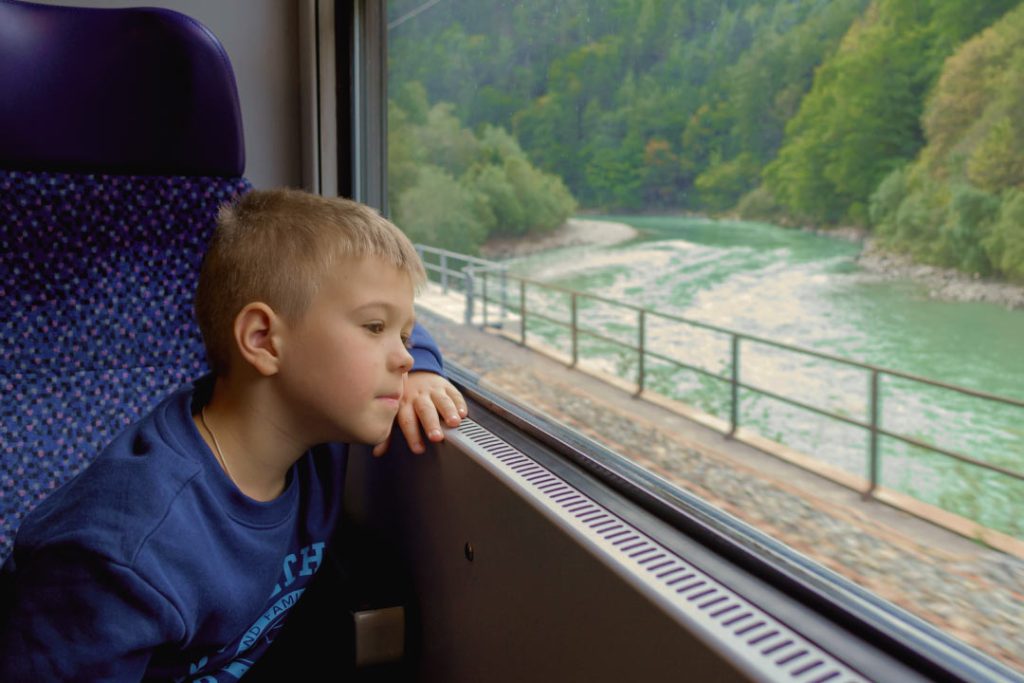
Remedy
Even small things help. Perhaps let your children be the boss. Let them be in charge of turning off all lights in your accommodation or time how long everyone’s shower is – young children love to take charge! If you have older kids, then consider a contest in exchange. E.g., an eight-minute shower uses approximately 48-64 gallons of water, but a 15-minute shower uses approximately 90- 120 gallons. Low-flow shower heads and faucets save a lot of water.
Don’t forget to bring your own reusable coffee cup, water bottle, and shopping bag; make your children be in charge of that as well.
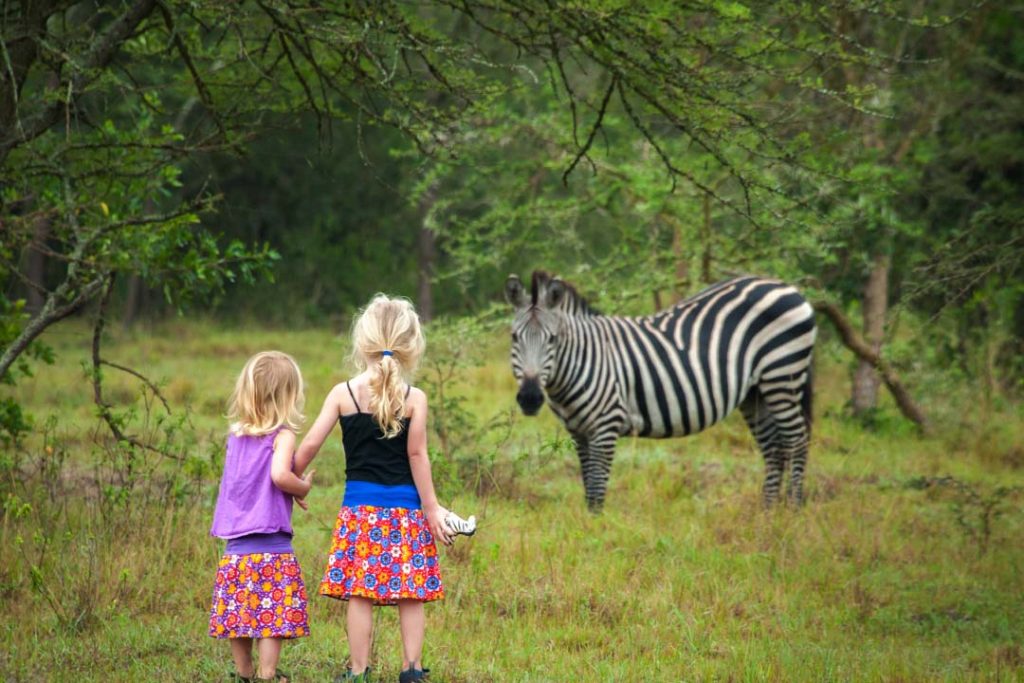
4. Animal Welfare
Although children’s love for animals is pretty universal, many are often not treated well and can even be subject to cruel practices. Ensure your animal experiences are as good for the animals as they are for you. Wild animals belong in the wild so ensure you don’t swim with dolphins or visit attractions where animals are kept in captivity – if there are opportunities to pet a tiger or a monkey – it is often because they are drugged. Look for excursions that visit animal sanctuaries rather than animal attractions; asking a few questions before booking will often clarify the origin and motivations of the establishment.
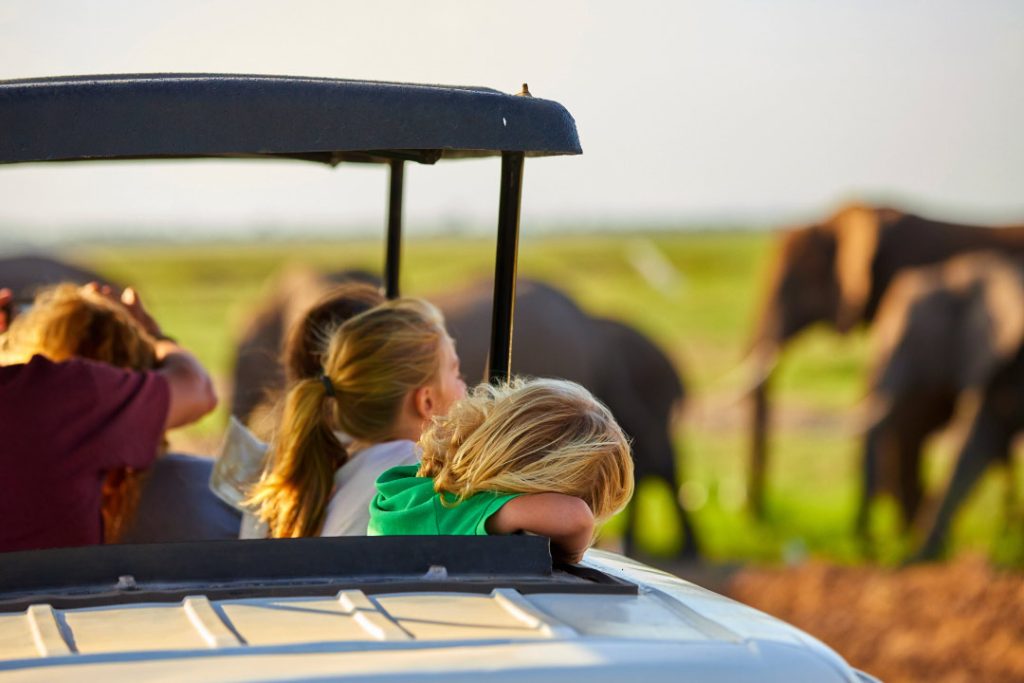
5. Sharing is Caring
When we are making progress, pushing the envelope, or discovering a practice we don’t approve of – don’t keep it to yourself! Traveling can broaden our minds and our horizons, and we can provide important feedback to organizers; we can highlight and reward them or motivate them to improve their efforts. The lessons of empathy, conservation, and awe we may experience when traveling should be shared. They might even present a great school project opportunity!
Be sure positive stories and continue to support organizations when you get home. Write a review, share your experience with your relatives, friends, and maybe even your colleagues about how to make a positive difference. Now that you have tips and tricks on how and where to start, head over to TourRadar to book your next family adventure.
And perhaps you feel inspired to learn and do more. A great way to start is, Are We There Yet? Traveling more responsibly with your children – a new book by Dr. Rachel Dodds and Richard Butler which has just won a top 10 USA Today Reader’s Choice Award for Best Family Gift! It outlines all the tips and tricks and much more to give your family adventures the sustainable edge it needs!
